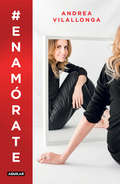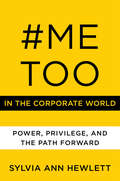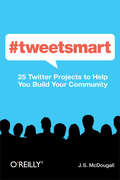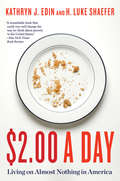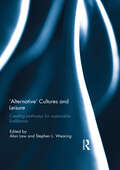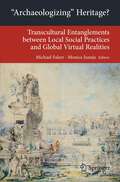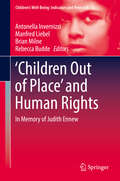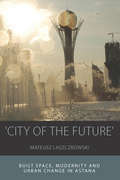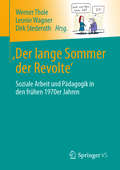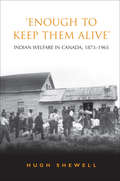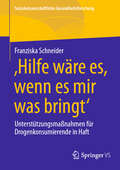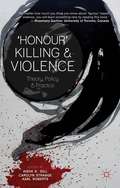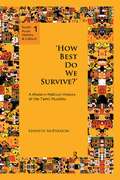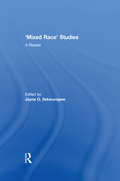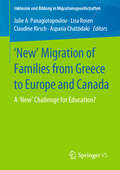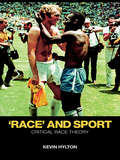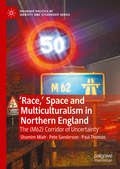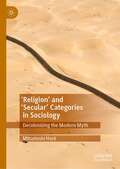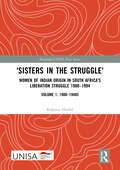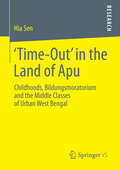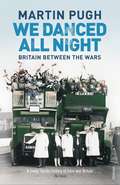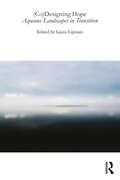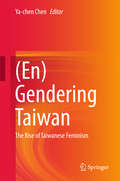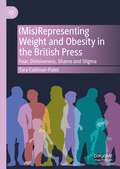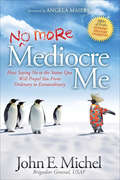- Table View
- List View
#Enamórate
by Andrea VilallongaVuelve la coach más destacada y mediática. A los clientes, a los compañeros, incluso a los jefes los podemos querer. Obviamente no con el mismo tipo de amor que a los seres que hemos escogido en la vida. Tras mucho tiempo con las mismas personas (tanto en el entorno profesional como en el personal) la rutina hace mella y el «amor» se desvanece. ¿Cómo podemos recuperar o mantener este amor en el entorno laboral? Mediante un análisis en cinco fases estaremos en condiciones de decidir y entender qué hacer para mantener el amor vivo en cualquier ámbito: .¿Realmente quieres volver a querer?.Si no puedes cambiar de trabajo ¿qué actitud estas tomando al respecto?.¿Tomas la responsabilidad de reavivar la llama del amor o esperas a que surja?.¿Podemos recrear paso a paso el proceso de enamoramiento para encontrar o volver a encontrar la motivación en nuestro día a día laboral?.¿Podemos responsabilizarnos de la continuidad del amor en nuestras vidas? La decisión está en tus manos, ¿sigues sobreviviendo o decides vivir bien? Cuando les pregunto a las personas por el amor, en seguida piensan en hijos, parejas, familia, mascotas... Raramente me han dicho trabajo, compañeros, clientes, jefes... Es curioso, porque el amor se define como un sentimiento de vivo afecto e inclinación hacia una persona o cosa a la que se le desea todo lo mejor. Y yo pienso: pues a los clientes, a los colegas e incluso a los jefes los podemos querer. A los clientes para que nos compren, a los compañeros para que nos aguanten (y viceversa), a los jefes para que nos tengan en cuenta. Piensa que seguramente pasas más tiempo con ellos que con las personas que realmente quieres o has escogido en la vida. Cuando nos desenamoramos de las personas que nos rodean (tanto en el ámbito profesional como en el personal) lo más fácil es tirar la relación por la borda, culpar a los demás y romper o decidir seguir, pero infelices. Sin embargo la pregunta que debemos hacernos es: ¿qué estoy haciendo yo para mantener esa relación?
#MeToo in the Corporate World: Power, Privilege, and the Path Forward
by Sylvia Ann HewlettEconomist and award-winning author Sylvia Ann Hewlett blends vivid stories with powerful new data in assessing the impact of the #MeToo movement in corporate America and provides concrete action to help executives and companies create more inclusive and safe work environments for women, people of color, and LGBTQ employees. While the #MeToo movement has exposed the enormous harm done by sexual misconduct in the workplace, the movement’s full promise has not been fulfilled, Sylvia Ann Hewlett argues. Showcasing new data on the incidence of sexual harassment and assault at work, she reveals how the movement has focused almost exclusively on white women and failed to support other vulnerable groups who are also targets of abuse. Black men, gay men and women, and Latinas experience particularly high rates of sexual harassment and assault. In addition to exploring the movement’s limitations, Hewlett examines the collateral damage inflicted by #MeToo. She looks at hits to the bottom line (lawsuits and settlements, tarnished brands, and stock devaluations) and hits to the talent pipeline. In particular she shows how male leaders, fearful of gossip and legal action, are increasingly skittish about sponsoring young women, no matter how high performing they are. This makes it much more likely that women will stall out mid-career and will deprive companies of diversity in the C-Suite and “gender smarts” around decision-making tables. Digging deep into examples that range from Fox News, Nike, and Google to CBS, Michigan State University, and the Catholic Church, Hewlett lays bare the financial losses associated with sexual misconduct scandals. No wonder corporate chief risk officers newly have #MeToo in their line of sight! A third of this book is devoted to solutions and Hewlett offers a three-pronged strategy, combining legal remedies with individual and corporate action steps that can be used to protect employees and businesses they work for. Drawing from companies as different as IBM and IPG she discusses “experiments at the edge” as well as more evolved initiatives that can help any corporation create a more equitable and safer environment.
#tweetsmart: 25 Twitter Projects to Help You Build Your Community
by J. S. McDougall"OK. I’ve got my Twitter account…now what can I do with it?" Sound familiar? #tweetsmart provides the answer with 25 creative projects to help your business, cause, or organization grow. But this isn’t just another social media marketing book—it’s the anti-marketing how-to community-engagement book.Twitter is not a marketing channel (and should never be used as such) but it is a community of interested, engaged, and influential people. Meeting and getting to know these people can help you build your own community. In this useful guide, you’ll find projects to help you approach your Twitter audience in ways that are strategic, measurable, and fun.Put a new wrinkle on an old contest: "be the 10th person to tweet"Create a hashtag game around your company or productsInstead of polling, ask your followers to help you make a product decisionMake MadLibs out of your marketing copy or mission statementHold a scavenger hunt, and relay clues via TwitterOrganize a weekly Twitter chat on various subjectsSolicit funny product shots, using Twitter’s photo-sharing utilitySpontaneously tweet from a store location: "Meet me now and win!"
$2.00 a Day: Living on Almost Nothing in America
by Kathryn J. Edin H. Luke ShaeferA revelatory account of poverty in America so deep that we, as a country, don Jessica Compton's family of four would have no cash income unless she donated plasma twice a week at her local donation center in Tennessee. Modonna Harris and her teenage daughter Brianna in Chicago often have no food but spoiled milk on weekends. After two decades of brilliant research on American poverty, Kathryn Edin noticed something she hadn't seen since the mid-1990s -- households surviving on virtually no income. Edin teamed with Luke Shaefer, an expert on calculating incomes of the poor, to discover that the number of American families living on $2.00 per person, per day, has skyrocketed to 1.5 million American households, including about 3 million children. Where do these families live? How did they get so desperately poor? Edin has "turned sociology upside down" (Mother Jones) with her procurement of rich -- and truthful -- interviews. Through the book's many compelling profiles, moving and startling answers emerge. The authors illuminate a troubling trend: a low-wage labor market that increasingly fails to deliver a living wage, and a growing but hidden landscape of survival strategies among America's extreme poor. More than a powerful exposé, $2.00 a Day delivers new evidence and new ideas to our national debate on income inequality.
'Alternative' cultures and leisure: Creating pathways for sustainable livelihoods
by Stephen L. Wearing Alan LawContemporary discourse on sustainability points to the need for substantial, if not radical, shifts in relations between productivity, environment, consumption and identities, in ways which bring or restore balance to the intersecting domains. The catchphrase of ‘sustainability’ has made its way into mainstream discourse on the heels of the ongoing global financial crisis and responses to global warming. The literature of leisure, sport and particularly tourism are replete with fine examples of ‘sustainability’, contributing to full ecology planning approaches. This book aims to stimulate debate and discussion within the leisure studies community about the roles of ‘alternative cultures’ in producing viable models of sustainable relations between work, leisure and environment. Key elements of these discussions, such as participatory democracy and deep ecology, have long been characteristic of cultural configurations loosely called ‘counter’ or ‘alternative’ to a voracious, hierarchical and unconscious modernity. However the leisure studies community has largely neglected their significance up until now. How are leisure, sustainable livelihoods and ‘alternative’ cultures connected, and what influence do they have? This book was originally published as a special issue of Annals of Leisure Research.
'Archaeologizing' Heritage?: Transcultural Entanglements between Local Social Practices and Global Virtual Realities (Transcultural Research – Heidelberg Studies on Asia and Europe in a Global Context)
by Michael Falser Monica JunejaThis book investigates what has constituted notions of "archaeological heritage" from colonial times to the present. It includes case studies of sites in South and Southeast Asia with a special focus on Angkor, Cambodia. The contributions, the subjects of which range from architectural and intellectual history to historic preservation and restoration, evaluate historical processes spanning two centuries which saw the imagination and production of "dead archaeological ruins" by often overlooking living local, social, and ritual forms of usage on site. Case studies from computational modelling in archaeology discuss a comparable paradigmatic change from a mere simulation of supposedly dead archaeological building material to an increasing appreciation and scientific incorporation of the knowledge of local stakeholders. This book seeks to bring these different approaches from the humanities and engineering sciences into a trans-disciplinary discussion.
'Children Out of Place' and Human Rights: In Memory of Judith Ennew (Children’s Well-Being: Indicators and Research #15)
by Brian Milne Antonella Invernizzi Manfred Liebel Rebecca BuddeThis volume brings together tributes to Judith Ennew's work and approach based on issues related to children she once referred to as 'out of place', that is to say children whose living conditions and ways of life appear far removed from Western images of childhood. It includes contributions on working children, children living on the street, orphans and victims of sexual exploitation. It covers developments and concepts used by Judith Ennew with an emphasis on perspectives of children's human rights, their participation, cultural sensitivity, research methodology, methods, ethics, monitoring, policy making and programming. In so doing, it brings together material that form a holistic view of not only her way of thinking, but of a policy and programming agenda developed by a number of researchers, academics and activists since the adoption of the UN Convention on the Rights of the Child.
'City of the Future': Built Space, Modernity and Urban Change in Astana (Integration and Conflict Studies #14)
by Mateusz LaszczkowskiAstana, the capital city of the post-Soviet Kazakhstan, has often been admired for the design and planning of its futuristic cityscape. This anthropological study of the development of the city focuses on every-day practices, official ideologies and representations alongside the memories and dreams of the city's longstanding residents and recent migrants. Critically examining a range of approaches to place and space in anthropology, geography and other disciplines, the book argues for an understanding of space as inextricably material-and-imaginary, and unceasingly dynamic – allowing for a plurality of incompatible pasts and futures materialized in spatial form.
'Der lange Sommer der Revolte': Soziale Arbeit und Pädagogik in den frühen 1970er Jahren
by Leonie Wagner Werner Thole Dirk StederothDie 1970er Jahre sind ohne das, was mit 1968 verbunden wird, kaum zu verstehen und die Ereignisse von 1968 würden möglicherweise heute in ihrer Bedeutung ohne die Veränderungen im darauffolgenden Jahrzehnt geringer eingeschätzt.In dem vorliegenden Band wird an Veränderungen im weiten Feld der Sozialen Arbeit und Erziehungswissenschaft zu Beginn der 1970er Jahre erinnert. Gerahmt werden diese Erinnerungen und kritischen Reflexionen durch Beiträge, die Ereignisse, Auseinandersetzungen und die Suche nach einem neuen Politik- und Kulturverständnis am Ende der 1960er Jahre illustrieren. Neben Beiträgen von Zeitzeug*innen wurden jüngere Wissenschaftler*innen gebeten, die Entwicklung aus ihrer Perspektive zu beleuchten.Die Herausgeber*innenProf. Dr. Werner Thole ist Hochschullehrer an der Universität Kassel.Prof.in Dr. Leonie Wagner ist Hochschullehrerin an der HAWK Holzminden.Prof. Dr. Dirk Stederoth ist Hochschullehrer am Institut für Philosophie der Universität Kassel.
'Enough to Keep Them Alive'
by Hugh E.Q. ShewellFar from being a measure of progress or humanitarian aid, Indian welfare policy in Canada was used deliberately to oppress and marginalize First Nations peoples and to foster their assimilation into the dominant society. 'Enough to Keep Them Alive' explores the history of the development and administration of social assistance policies on Indian reserves in Canada from confederation to the modern period, demonstrating a continuity of policy with roots in the pre-confederation practices of fur trading companies.Extensive archival evidence from the Indian Affairs record group at the National Archives of Canada is supplemented for the post-World War Two era by interviews with some of the key federal players. More than just an historical narrative, the book presents a critical analysis with a clear theoretical focus drawing on colonial and post-colonial theory, social theory, and critiques of liberalism and liberal democracy.
'Hilfe wäre es, wenn es mir was bringt': Unterstützungsmaßnahmen für Drogenkonsumierende in Haft (Sozialwissenschaftliche Gesundheitsforschung)
by Franziska SchneiderDieses Buch bietet einerseits Handlungsempfehlungen zur Verbesserung der Situation drogenkonsumierender Inhaftierter und des Allgemeinen Vollzugsdienstes und andererseits einen Zukunftsausblick für zukünftige Haftanstalten, mit diesem Themenbereich besser umgehen zu können. Das Spannungsfeld zwischen Strafe und Hilfe resultiert aus der Diskrepanz zwischen der strikten Vorgabe, dass eine JVA ein drogenfreier Raum sein sollte, und der Tatsache, dass dies derzeit nicht als gegeben angesehen werden kann. Diesem Umstand kann auf zweierlei Art Rechnung getragen werden: Einerseits kann man versuchen, den Konsum von illegalen Drogen durch strenge Kontrollen einzuschränken und ihn zu bestrafen, anderseits kann man aber auch Hilfsmaßnahmen für Konsumierende anbieten. Folglich stellt sich die Frage, wie Inhaftierte und Angehörige des AVD mit diesem Widerspruch umgehen. Auch ist bisher nicht geklärt, inwieweit Inhaftierte Hilfsmaßnahmen, beispielsweise aus Angst vor möglichen Konsequenzen durch das Bekanntwerden des Konsums illegaler Substanzen, nicht in Anspruch nehmen. Ebenso soll in diesem Rahmen das Interesse drogenkonsumierender Inhaftierter an Hilfsangeboten sowie ihre Beweggründe für oder gegen eine Teilnahme an Maßnahmen herausgearbeitet werden. Ziel des Projektes war es, das Spannungsfeld zwischen Strafe und Hilfe in der intramuralen Gesundheitsfürsorge im deutschen Justizvollzug zu erforschen. Hierbei wurde vor allem der Konsum illegaler Substanzen in einer deutschen JVA durch die Analyse von Gesprächen mit Inhaftierten und Angehörigen des AVD in den Fokus gerückt. Substanzkonsum in Haft geht häufig sowohl mit Repression als auch mit dem Angebot von Hilfsmaßnahmen einher. Die sozialen Gruppen, die von diesem Spannungsfeld besonders betroffen sind, wurden in dieser Arbeit eingehend betrachtet. Besonders relevant ist dieses Buch sowohl für die Mitarbeitenden des Vollzugs selbst, die dadurch einen reflektierten Blick auf ihre Aufgaben und die an sie gestellten Erwartungen erhalten als auch für Politik und Öffentlichkeit: Es zeigt sich, wie groß das Spannungsfeld zwischen Strafe und Hilfe bei Drogenkonsum in Haft ist und welche Möglichkeiten es gibt, diese Kluft zu überwinden und drogenkonsumierenden Inhaftierten aber auch den Mitarbeitenden einen guten Umgang damit zu ermöglichen.
'Honour' Killing and Violence: Theory, Policy and Practice
by Aisha K. Gill Carolyn Strange Karl RobertsIn this interdisciplinary collection leading experts and scholars from criminology, psychology, law and history provide a compelling analysis of practices and beliefs that lead to violence against women, men and children in the name 'honour'.
'How Best Do We Survive?': A Modern Political History of the Tamil Muslims (South Asian History and Culture)
by Kenneth McPhersonThis book traces the social and political history of the Muslims of south India from the later nineteenth century to Independence in 1947, and the contours that followed. It describes a community in search of political survival amidst an ever-changing climate, and the fluctuating fortunes it had in dealing with the rise of Indian nationalism, the local political nuances of that rise, and its own changing position as part of the wider Muslim community in India. The book argues that Partition and the foundation of Pakistan in 1947 were neither the goal nor the necessarily inescapable result of the growth of communal politics and sentiment, and analyses the post-1947 constructions of events leading to Partition. Neither the fact of Muslim communalism per se before 1947 nor the existence of separate Muslim electorates provide an explanation for Pakistan. The book advances the theory that micro-level studies of the operation of the former, and the defence of the latter, in British India can lead to a better understanding of the origins of communalism. The book makes an important contribution to understanding and dealing with the complexities of communalism — be it Hindu, Muslim or Christian — and its often tragic consequences.
'Mixed Race' Studies: A Reader
by Jayne O. IfekwunigweMixed race studies is one of the fastest growing, as well as one of the most important and controversial areas in the field of race and ethnic relations. Bringing together pioneering and controversial scholarship from both the social and the biological sciences, as well as the humanities, this reader charts the evolution of debates on 'race' and 'mixed race' from the nineteenth to the twenty-first century. The book is divided into three main sections: tracing the origins: miscegenation, moral degeneracy and genetics mapping contemporary and foundational discourses: 'mixed race', identities politics, and celebration debating definitions: multiraciality, census categories and critiques. This collection adds a new dimension to the growing body of literature on the topic and provides a comprehensive history of the origins and directions of 'mixed race' research as an intellectual movement. For students of anthropology, race and ethnicity, it is an invaluable resource for examining the complexities and paradoxes of 'racial' thinking across space, time and disciplines.
'New' Migration of Families from Greece to Europe and Canada: A 'New' Challenge for Education? (Inklusion und Bildung in Migrationsgesellschaften)
by Lisa Rosen Julie A. Panagiotopoulou Claudine Kirsch Aspasia ChatzidakiThe volume aims at analysing the migration processes of families from Greece following the financial crisis from 2009 onwards. It investigates whether and to what extent this ‘new’ and international migration represents a new phenomenon when compared to the so-called migration of guest-workers during the sixties.
'Race' and Sport: Critical Race Theory
by Kevin HyltonCritical Race Theory provides a framework for exploring racism in society, taking into account the role of institutions and drawing on the experiences of those affected. Applied to the world of sport, this framework can reveal the underlying social mores and institutionalised prejudices that have helped perpetuate those racial stereotypes particular to sport, and those that permeate broader society. In this groundbreaking sociological investigation, Kevin Hylton takes on the controversial subject of racial attitudes in sport and beyond. With sport as his primary focus, Hylton unpacks the central concepts of ‘race’, ethnicity, social constructionism and racialisation, and helps the reader navigate the complicated issues and debates that surround the study of ‘race’ in sport. Containing rigorous and insightful analysis throughout, the book explores key topics such as: the origins, applications and terminology of Critical Race Theory the meaning of ‘whiteness’ the media, sport and racism anti-racism and sport genetics and scientific racism. The contested concepts that define the subject of ‘race’ in sport present a constant challenge for academics, policy makers and practitioners in the development of their ideas, policies and interventions. This innovative and challenging book is essential reading for anybody looking to fully understand this important subject.
'Race,’ Space and Multiculturalism in Northern England: The (M62) Corridor of Uncertainty (Palgrave Politics of Identity and Citizenship Series)
by Paul Thomas Shamim Miah Pete SandersonThis book challenges the narrative of Northern England as a failed space of multiculturalism, drawing on a historically-contextualised discussion of ethnic relations to argue that multiculturalism has been more successful and locally situated than these assumptions allow.The authors examine the interplay between ‘race’, space and place to analyse how profound economic change, the evolving nature of the state, individual racism, and the local creation and enactment of multiculturalist policies have all contributed to shaping the trajectory of ethnic/faith identities and inter-community relations at a local level. In doing so, the book analyses both change and continuity in discussion of, and national/local state policy towards, ethnic relations, particularly around the supposed segregation/integration dichotomy, and the ways in which racialised ‘events’ are perceived and ‘identities’ are created and reflected in state policy operations. Drawing on the authors’ long involvement in empirical research, policy and practice around ethnicity, ‘race’ and racism in the Northern England, they effectively support critical and situated analysis of controversial, racialised issues, and set these geographically specific findings in the context of wider international experiences of and tensions around growing ethnic diversity in the context of profound economic and social changes.
'Religion’ and ‘Secular’ Categories in Sociology: Decolonizing the Modern Myth
by Mitsutoshi HoriiInformed by ‘critical religion’ perspective in Religious Studies and postcolonial self-reflection in Sociology, this book interrogates the ideas of ‘religion’ and ‘the secular’ in social theory and Sociology. It argues that as long as social theory and sociological discourse embed the religion-secular distinction and locate themselves on the ‘secular’ side of the binary, Sociology will continue to serve the very ideologies it tries to subvert – namely Western modernity/coloniality.
'Sisters in the Struggle': Women of Indian Origin in South Africa's Liberation Struggle 1900–1994 (VOLUME 1: 1900–1940s) (Routledge/UNISA Press Series)
by Kalpana Hiralal‘Sisters in the struggle’: Women of Indian Origin in South Africa’s Liberation Struggle 1900–1994 unveils an unchartered historical terrain, highlighting the contributions of Indian women towards non-racialism and equality and their experiences within diverse political parties; therefore, shifting the post-apartheid liberation stories which have been dominated by the journey of the ANC to other political organisations who collectively played a significant role in South Africa’s road to democracy. In this book, Hiralal presents a refreshing perspective of Indians, particularly women, as contributors and activists in the struggle. The book elucidates that the struggle against apartheid was a collective endeavour among the oppressed races and not a one-sided endeavour by the ANC. The book, thus, examines the participation of Indian women against apartheid and colonialism within gendered and political frameworks.
'Time-Out' in the Land of Apu
by Hia Sen Within Childhood Research starkly different theoretical and empirical concerns characterize the global south-north divide. Hia Sen attempts to bridge the gap in Childhood Research which usually addresses childhoods differently according to their 'developing/developed', 'western/non-western' contexts, and finds its middle ground in the context of the urban middle classes in contemporary West Bengal. The author documents areas such as leisure practices and everyday lives of school children in India for three cohorts, where it is possible to have a comparative perspective of childhoods given the existing rich ethnographic and historical research on childhoods in other cultural contexts.
'We Danced All Night': A Social History of Britain Between the Wars
by Martin PughMartin Pugh offers a uniquely untraditional view of Britain’s inter-war period; that among the many dramatic social changes taking place, our modern consumer society of dedicated shoppers effectively took shape during the 1930s.
(Co)Designing Hope: Aqueous Landscapes in Transition
by Laura CiprianiExtreme weather events, droughts, floods, shifts in precipitation and temperature patterns, melting glaciers, sea-level rise, water salinization, and more generally, changes in the water cycle remind us that the climate crisis is mostly a water crisis. Perhaps even more serious is a crisis of imagination connected with thought and with creative, far-sighted action able to combine the visionary and the pragmatic. A response to these two crises can be provided by the disciplines of landscape architecture: these have always featured a plural, collective approach that comprises or originates from living systems and natural forces, on the involvement of human and nonhuman communities in the design process, and the inclusion of the time variable in future plans—without neglecting the necessary flexibility of creative and pragmatic thinking. How can landscape design and different forms of collaboration open new doors to face climate and water challenges? What hopes can spring from collective design in its broader meaning?This book sets out notions and ideas on water landscapes and (co)designed practices, identifying what hopeful routes might be taken for the three states of aqueous landscapes in transition—liquid, solid, and gas. The chapters show different scales and levels of design and collaborative practices: from large and governmental projects to small bottom-up interventions; from creative collaboration among designers to traditional community design; from participatory processes to nature as a co-designer for tackling the climate crisis. People, animals, plants, water, ice, fog, clouds, wind, sand, and rocks—all contribute to the cosmos’ landscape symphony, and designing together can become a seed of hope to listen and embrace the Earth’s climate changes.
(En)Gendering Taiwan
by Ya-Chen ChenThis book highlights the diversity and richness of non-Mainland China and Taiwan-oriented gender issues from a unique Taiwanese perspective, in contrast to previous studies that have often placed Taiwanese gender issues under the huge umbrella of Mainland Chinese, Communist Chinese, or P.R.C. women’s and gender studies. In a follow-up dialogue to and with Liu’s, Karl’s, and Ko’s The Birth of Chinese Feminism, this book looks at the various metaphorical details of that “birth” and the different dimensions of Mainland Chinese versus Taiwanese feminism and gender issues. Although Chinese-heritage people share similar traditions, different gender problems have occurred in and challenged various local conditions of Chinese-speaking areas. Taiwan’s gender issues have reflected Taiwan’s unique historical, sociocultural, economic, political, (post)colonial, military, and diplomatic backgrounds, in ways unfamiliar to the many people with a Chinese background who are not Taiwanese. This volume gives a historical outline of the people and events that paved the way for the rise of Taiwanese feminism, and includes portraits of famous feminists, gender issues in institutions, and a variety of gender concerns.
(Mis)Representing Weight and Obesity in the British Press: Fear, Divisiveness, Shame and Stigma
by Tara Coltman-PatelThis book is a linguistic analysis of the British obesity media narrative, analysing a large corpus of published newspaper articles to demonstrate how the language used perpetuates common misconceptions and stereotypes about weight and obesity, and then exploring the sociological effects of these widespread conceptualisations. Weight stigma and weight bias are misunderstood issues, and often underestimated in terms of their prevalence and effect by society at large. The author examines topics including the role of power and persuasion, the use of metaphor, the personal stories of members of the general public, and the gendered real-life consequences of arbitrary weight standards to provide a linguistic driven study of obesity in news media. Obesity is an issue which sits at the intersection of science and the humanities, and as such, although the research methods used are firmly situated within the field of Linguistics, this book will also be of interest to readers from fields as diverse as Sociology, Fat Studies, Media Studies, Medicine and Psychology.
(No More) Mediocre Me: How Saying No to the Status Quo Will Propel You From Ordinary to Extraordinary
by John E. MichelIf you were to account for your life at this moment—are you living up to your own potential? Does your present state of affairs give you reason to be disappointed or discouraged? Is your job unsatisfying…your relationships far from what they could be…your spiritual life a mere shadow of what it once was? If you answered “yes” to one or more of these questions, then there is a very good chance you--like scores of other Americans--have been lulled into accepting a life that is simply "good enough." This is what I term a Mediocre Me Mindset--a confining way of thinking about your role in the world that convinces you to settle for the perceived safety of the status quo rather than push outside your comfort zone to try and make tomorrow a little better than you found it today. In Mediocre Me, you will find a simple, yet profoundly powerful approach to rethinking the way you view your role in the world. It’s a proven means of breaking free from the grasp of mediocrity so you can lead a life of true purpose, meaning, and significance. And perhaps the best part of all…it’s not a new idea! The concepts in Mediocre Me are actually anchored in an over two thousand year old legend. One that reminds us we are at our individual and collective best not when we are standing still, unwitting prisoners of the status quo, but rather, when we are unafraid to reject apathy and embrace action by leading the positive change we want to see occur in our surroundings. Ralph Waldo Emerson once wrote, “America is another name for opportunity.” At a time in our nation’s history when we seem more divided than united, more fearful than hopeful, there can be no more fence-sitting. It’s time to begin writing a different, more empowering personal leadership story of your own. One that will energize you to do what you can, when you can, where you can, to be a force for good in your part of the world when doing so is needed now more than ever.
